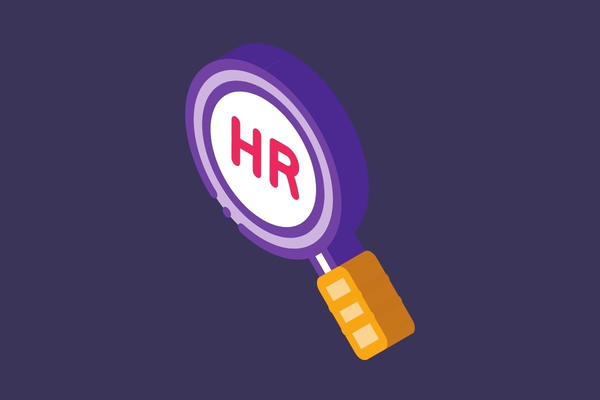A Human Resources (HR) Manager has an important role in any business no matter how big or small. The decisions they make and the work they do affect everyone in the company, so having an HR Manager who is the right fit could mean the difference between a successful business and a failing one. When assessing your own or someone else’s suitability for an HR Manager position, it is useful to define personality traits that would be advantageous in the role with the use of DISC assessments.
Human Resources is a complex area that covers many different personality traits. The best DISC profile for a Human Resources Manager might include:
- Low Dominance, an HR Manager would ideally prefer to plan out strategies before taking action
- Low Influence, ideally someone supportive who likes to work independently
- High Stability, someone with stable and consistent personality traits
- High Compliance, a manager who likes to create policies and implement them
The more you know about yourself and your unique behaviours, the better you’ll be able to determine how to grow and develop to meet the demands of your role. By characterising your DISC profile through the use of DISC assessments, you’ll identify behavioural traits to help you thrive, as well as areas in need of development.
What Personality Type is Good for HR?
As with a lot of professions, the best personality type for an HR Manager is not entirely straightforward. There are essential traits an HR manager possesses such as people skills, problem solving, strategic planning, and organisational skills.
When it comes to DISC personality assessments, a variety of different traits could work well in an HR role and trying to choose a person with an ideal DISC profile misses the point. The DISC profile is an educational tool to guide workplace interactions and behaviours unique to every individual. It can help an HR team adjust the work environment to the individual’s personality type so they can succeed no matter what personality type they have.
What does a DISC Profile tell us about an HR Manager?
Ideally, a DISC assessment would be a standalone instrument to identify all the characteristics of an individual that would allow them to succeed as an HR Manager. Unfortunately, a DISC profile does not measure skillset, attitude, knowledge, values, or experience, but it does focus on behaviour.
By being more aware of our behaviours, we can fine tune them to be more successful. It would be disingenuous to say there is a single specific DISC profile that is best suited for an HR Manager since every individual will have strengths complemented by areas to develop. Knowing your DISC profile is the first step, but applying its lessons will help any HR Manager to succeed in their role.
What 4 key Behavioural Qualities are Best for an HR Manager?
A behavioural quality is how someone naturally acts in certain circumstances. These traits can also be taught or acquired, but someone who naturally has these traits would be an ideal candidate for an HR Manager:
- Considerate and intuitive. Someone who has empathy and can relate easily to others, and uses that deeper insight to come up with creative ways to solve problems.
- Attentive, caring, and has an eye for detail.
- Consistent, reliable, and predictable. Someone who can plan and execute rules and procedures.
- Organised, structured, and methodical. A problem solver who can strategically plan a solution.
What Skills do HR Managers Need?
HR managers require a range of leadership and management training skills necessary to build, train, and maintain a productive and happy workforce. The more skills an HR Manager possesses, the more successful a workforce can become. These are some fundamental skills every HR manager should possess:
Communication skills
A fundamental aspect of HR is having the ability to communicate effectively. From recruitment and induction through to policies, procedures, and disciplinary actions, each step of an employee’s journey relies on clear communication of what is expected of them. It is Human Resources’ responsibility to communicate with managers to make sure each staff member has the skills, training, and information they need to do their job effectively and efficiently.
HR personnel deal with a lot of people throughout any organisation on a daily basis, listening to issues and implementing problem-solving techniques. It is important for HR Managers to gain the trust and confidence of employees and managers to improve relationships within the workforce.
Organisational skills
Human resources management encompasses a lot of different functions such as recruitment, training, appraisals, personal development plans, and employee relations. The HR manager is most likely in charge of overseeing all of these functions and implementing a systemic way of organising and administering these processes.
There is also a great deal of paperwork involved in HR that is highly confidential. Systemic filing abilities for personnel records and legal documents is crucial for any high performing HR department.
Decision making skills
Making decisions for the betterment of the company is a constant task for HR managers. From recruiting the best candidates for a role to training staff or downsizing in the midst of a crisis, managers need the ability to make informed and strategic decisions, sometimes in the midst of difficult circumstances.
Problem solving skills
HR managers have to deal with a lot of issues, whether it’s personal to the employee or work related. If the issue at hand affects someone’s ability to do their job, HR can get involved. It is up to the HR manager to find diplomatic ways to solve a problem, ideally benefiting the company and the involved employees.
Training and developmental skills
HR managers are responsible for providing appropriate and useful development opportunities for staff members in order to maximise performance and increase the value of their work. Organising and providing a diverse set of skills and training opportunities to support career growth and optimise productivity are all key functions of an HR manager.
Budgeting skills
Employee benefits and compensations, along with training and development, social activities and performance appraisals, are all led by the HR department. The department as a whole, or each program within the department’s functional areas, has a corresponding budget that needs to be appropriately allocated according to need, availability, and business strategy. Although these activities do not have a direct return on investment, they need to be incorporated into the organisation’s strategic planning and budgeting. It is the role of the HR manager to oversee and administer these budget activities accordingly.




